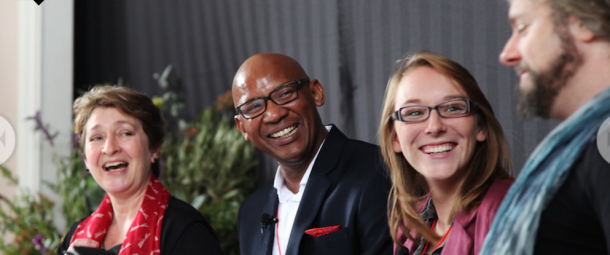Festival Literário de Franschhoek, na África do Sul: tensões e temas delicados
Published22 May 2015

(Imagem do site http://www.flf.co.za/)
O Franschhoek Literary Festival aconteceu dias 15, 16 e 17 de Maio, na África do Sul, um evento que se organiza desde 2007 naquela localidade. O New York Times publica um artigo sobre o festival, analisando as tensões que o atravessam.
Franschhoek, about an hour’s drive from Cape Town, means “French corner” in Dutch; its name derives from the 200-odd Huguenot settlers who, fleeing religious persecution in their home country, came to South Africa in 1688 and began to produce wine in this lush valley ringed by mountains. Today, the town’s startling natural beauty, well-preserved Cape Dutch architecture, and many vineyards and restaurants have turned it into a major tourist destination.
In 2007, a small group of enthusiasts started a literary festival as a way to raise money for a local library. Today it is a major event on the South African cultural calendar. Audiences, some 5,000 this year, many from other parts of the country, crowd into the tiny town to attend three days of tightly packed discussions, book releases and concerts.
But as Mr. Madondo, who is black and is the author of a book on the singer Brenda Fassie, pointed out, the festivalgoers are mostly white — a curious and pertinent index to the difficulties and ambiguities around race, class and culture that still permeate South African society, where whites make up just 8.4 percent of the country’s population, estimated at 54 million last year.
The festival doesn’t shy away from exploring these difficulties. The program, while containing a fair share of literary topics, is far more oriented toward socio-cultural or socio-political topics than most events of this kind. Subjects like “Fear and Loathing in South Africa”; “What Makes One an African?”; “Can the A.N.C. be Mended?” and “We Won’t Get No Education” make up about half of the events, and the panels are generally models of racial diversity.
“The topics about politics and social issues are our biggest events and always sold out,” said Ann Donald, the director of the festival, who is white. “I think South Africans are trying to understand their situation, whatever capacity they are coming from.”
O artigo completo em At South African Literary Festival, Broaching Uncomfortable Subjects
